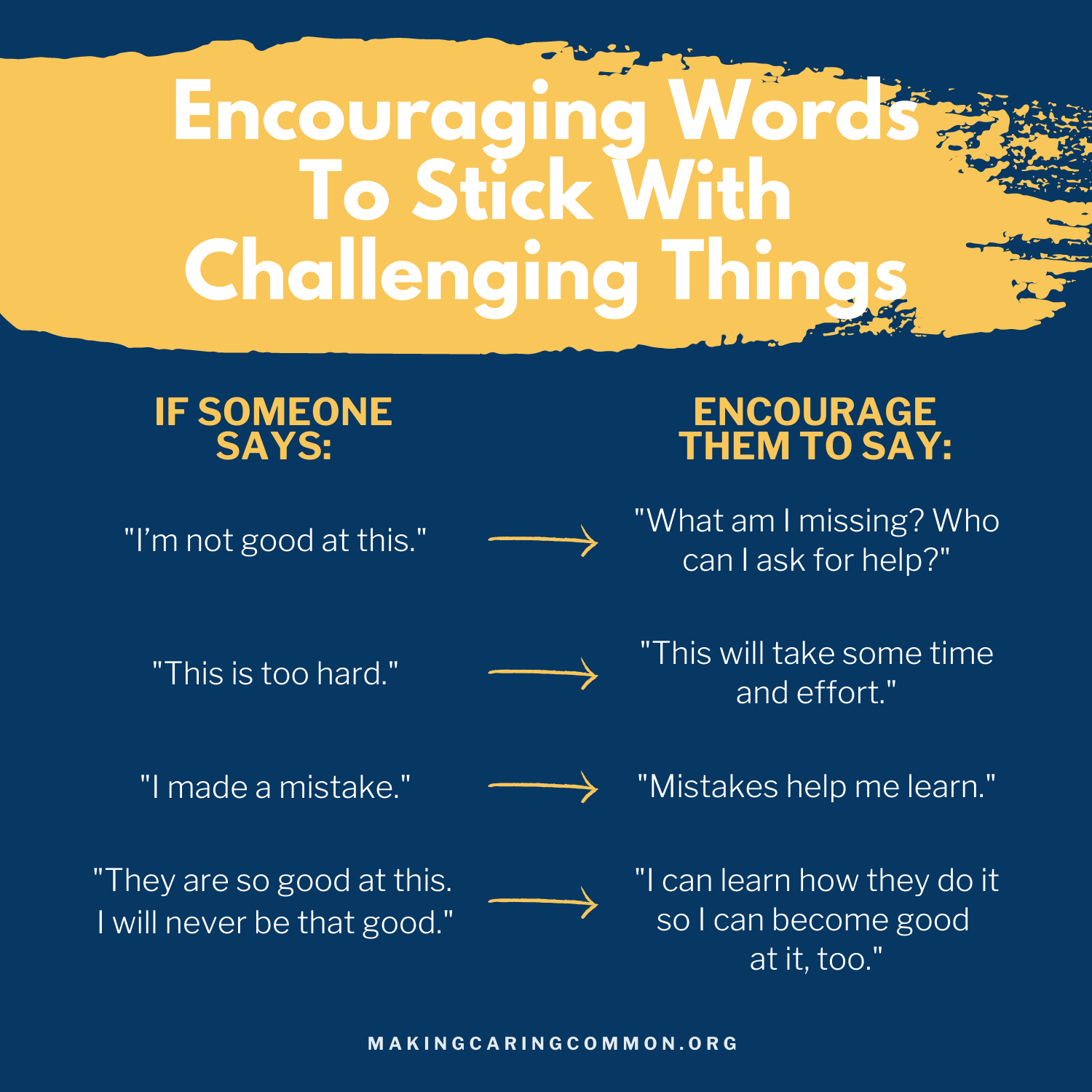How To Help Kids Stick With Challenges
Sticking with challenges requires both perseverance and passion. To help kids stick with something it’s important that we first identify something they love or like to do, or a goal that is personally important to them in some way. Kids don’t need to love or like all their tasks, such as helping with the dishes or taking out the trash. But sticking with a challenge in itself implies a few things: it’s pretty tough, it’s doable, and seeing it through requires sustained effort or deliberate practice. We can support kids and encourage them to stick with their efforts by encouraging a growth mindset. This is the understanding that it’s not natural talent but rather our effort that matters, and that challenges are opportunities for practice and learning. Having a growth mindset can help anyone complete their goals and persevere through future challenges.
Below are four key steps for adults to help kids to stick with challenges.
1. Identify a challenge or something hard to work on
Together, identify a hard thing for each person to work on for the next week (or month, depending on the challenge). It can be anything as long as:
It's something the person wants or needs to do,
It's a goal that can be accomplished,
The person might struggle with it, AND
The person agrees to stick with it.
2. Encourage each other
Someone is likely to get discouraged or want to quit. Encourage each other throughout the process. For example, if someone says, "This is too hard," encourage them to say, "This will take some time and effort."
Encouraging words to stick with challenging things
TIP FOR PARENTS IT CAN BE TEMPTING TO BLAME OTHERS FOR OUR MISTAKES, BUT STAY POSITIVE AND FOCUS ON WHAT YOU DID OR COULD HAVE DONE TO IMPROVE THE SITUATION.
3. Reflect together – and share your own struggles
Talk together about how it feels to be working toward your goals. What feels hard, exactly? What could make it easier or more doable? Share your own struggles, feelings about your own challenging goal, or whether you need help or how someone may have helped you. Kids need to see adults be brave and vulnerable enough to ask for help themselves.
4. Make it a habit
Whether you take up challenges weekly or monthly, make a commitment to see them as opportunities for learning. You can have fun with this, too! If you have a printer, download and print the following activity sheet. If you don’t have a printer or if you’d prefer, together jot down your own ideas or questions on a piece of paper.
Additional Information
The Science Behind These Recommendations
Persevering through challenges is a topic that has been researched extensively. Here are key resources we consulted - in addition to experts and parents - that are behind the recommendations shared on this page:
Duckworth, A. (2016). Grit: The power of passion and perseverance. Scribner/Simon & Schuster. [Abstract]
Duckworth AL, Kirby TA, Tsukayama E, Berstein H, Ericsson KA. Deliberate Practice Spells Success: Why Grittier Competitors Triumph at the National Spelling Bee. Social Psychological and Personality Science. 2011;2(2):174-181. [Abstract]
Dweck C. (2014). Teachers’ mindsets: “Every student has something to teach me”: Feeling overwhelmed? Where did your natural teaching talent go? Try pairing a growth mindset with reasonable goals, patience, and reflection instead. It’s time to get gritty and be a better teacher. Educational Horizons, 93(2),10-15. [Abstract]







